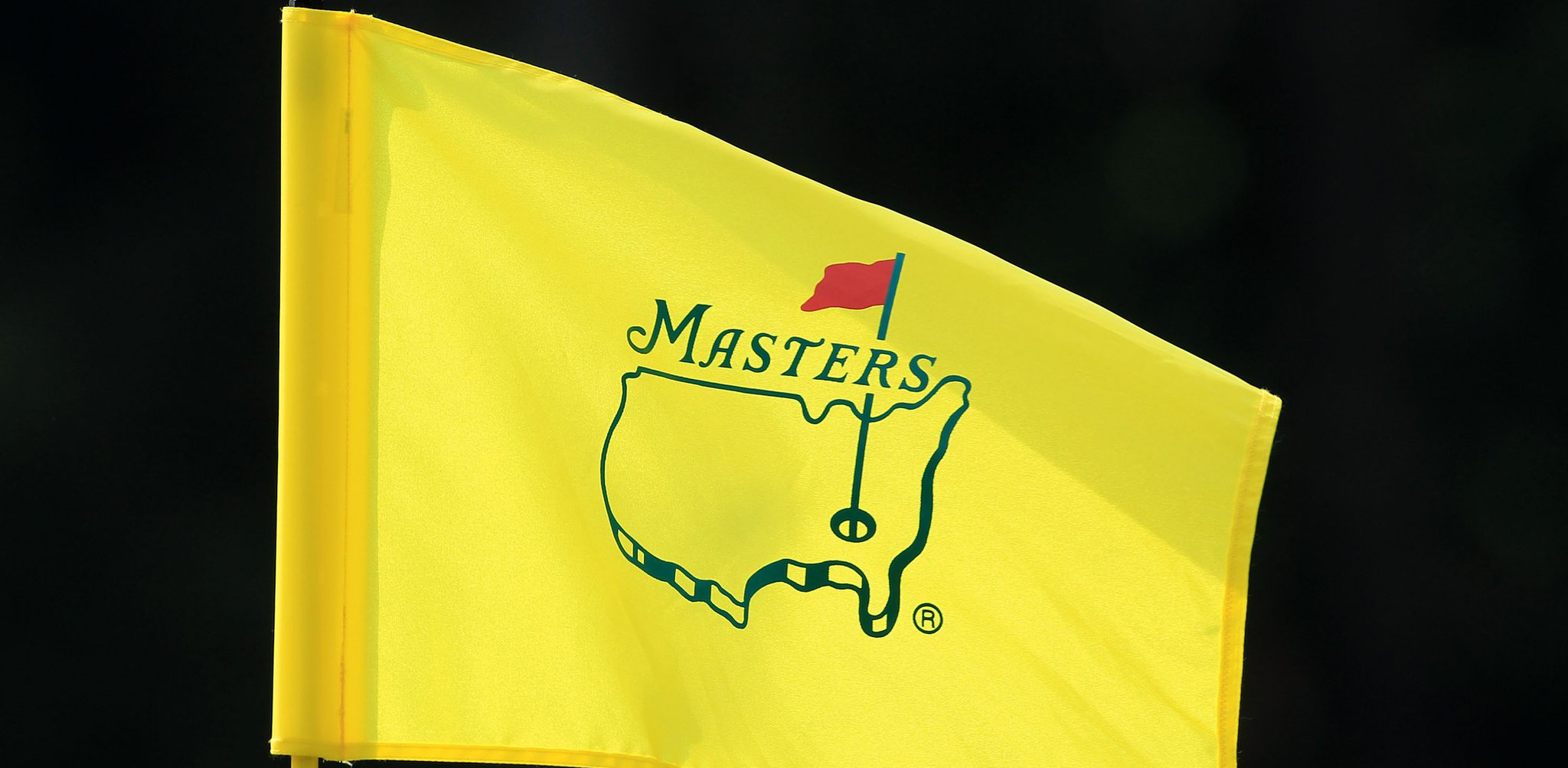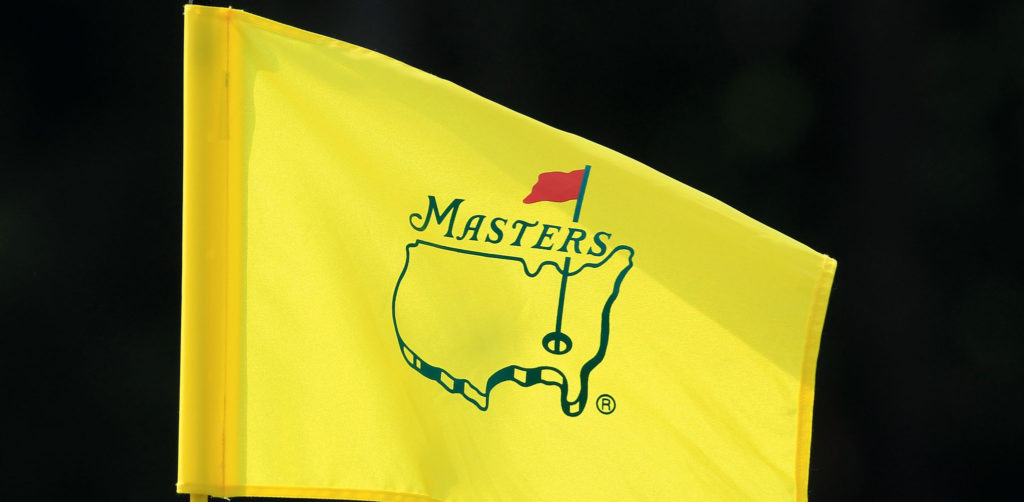AUGUSTA, Ga. — He’s called Captain America for the emotion and passion he’s brought to both his team and game in his young and very successful Ryder Cup career.
Now Patrick Reed is Captain Augusta.
Polarizing and brash, the won’t-back-down 27-year-old won a horn-honking, move over 2018 Masters by keeping two hands on the wheel as Augusta National turned into Formula One Golf, exploding with birdies and pedal-to-the-metal charges and sudden starts and stops from some familiar faces—but in some unfamiliar ways.
When his three-foot putt fell for par at the 18th, he’d beaten Rickie Fowler by a stroke and Jordan Speith by two with a 15-under 273 performance that started with a blistering 69-66-67 and ended with a battling one-under 71. Once he got the lead Friday, he just wouldn’t get out of the way.
Oh, they tried. If it wasn’t the Augusta winds tricking him or the pine straw his ball was drawn to early Sunday or a taste of bad luck now and then, it was all those other players out there who wanted that green jacket. But Reed, playing roadhog, kept blocking traffic.
And all the time, this self-professed leaderboard watcher had is eyes on them.
“Every time I looked up there,” he said, “they were getting closer and closer.”
But through a whole afternoon of being tailgated while trying to win his first major at the world’s most famous golf event, Reed kept them in his rearview mirror. And he beat them. He beat Augusta National. He beat the field. He beat a European rival, a Spanish up-and-comer, his American friends…Reed beat them all.
“They” turned out mainly to be friends Fowler and Spieth and young Spaniard John Rahm. Who “they” didn’t turn out to be, a bit surprisingly, was Rory McIlroy.
As Sunday’s final pairing, Reed and McIlroy were separated by three strokes and joined by history after their entertaining and intense match-play round during the Sunday singles of the 2016 Ryder Cup at Hazeltine National Golf Club. Reed won that match, 1-up, and was the best player that weekend on the United States team.
Sunday’s final pairing had plenty of drama, but only through the first 9. The two kept going back and forth; had this been match play, they wouldn’t have halved a hole until 9. By then, Reed had played par golf and McIlroy had dropped a shot on the par-5 dogleg 8th when he drove into the trees, had to punch out, and three-putted. McIlroy, who’d shot a 65 Saturday to move into second place, made the turn at 37, same as in 2011 when he’d led the Masters going into Sunday but shot a second 9 43 to finish with an 80.
His 74 Sunday, on a day when 33 players shot under-par, was tied for the third-highest score in the 53-man field.
Any serious part McIlroy, gunning Sunday for golf’s Grand Slam, might have played in Sunday’s showstopper probably ended on 2 when he missed a short putt for eagle. It’s rare you walk off a green disappointed with a birdie, but McIlroy managed to pull it off. It would be the first of many he’d miss Sunday on an afternoon when he never felt comfortable with any club. He finished at minus-9 in a four-way tie for fifth.
Of course, that was of little help to Reed now, because even though the popular Irishman was subdued, trouble now came from other places. It was those pesky Americans.
First it was Speith, who keeps surprising people even though we should expect this by now. After all, he’s finished 2, 1, 2, and 11 in his previous four Masters starts. At 24, he’s a PGA Championship away from a career Grand Slam. And he had been the first-round leader after his 66 Thursday. But a 74 Friday and 71 Saturday had dropped him into a tie for ninth, 9 shots back. He’d have to make up an average of a half-stroke a hole just to tie, right?
Of course. But even with all that information, there was still a “wait a minute” moment when, playing with Justin Thomas four parings behind Reed and McIlroy, Speith began summoning his inner Hogan, a feat made easier by the fact Reed was play par golf, a stable target getting closer, not farther away.
First Speith birdies 1 and 2. Then 5. Then 8 and 9. He’s making the turn in 31, he’s made up 5 strokes on the leader, and suddenly he’s only 4 back with the Masters beginning, for all intents and purposes, on the 10 tee box Sunday, which is exactly what was happening.
“Don’t be surprised,” Fowler said after Sunday’s frantic finish, “if he just pulls something off that’s just…Jordan.”
Speith kept right on Jordaning with a birdie on 12, a hole that has haunted him a bit since he went in the water there twice on Sunday in 2016, made 7 and ended up finishing second; he’d had a 5-shot lead at the turn after four straight birdies. So Sunday, when he hit it to the back fringe above and just to the right of the hole, he smiled and raised his arms in mock self-praise.
Then he putted in from back there for birdie. And birdied 13. And was only two strokes off a share of the lead. Because Reed had bogeyed 11.
But…
Reed, the former University High of Baton Rouge state champ and member of the two-time Division I NCAA Augusta State National Champions, birdied 12 for the first time in his five Master appearances, rolling in a 22-footer left-to-right toward the creek to get the stroke back.
Again, every time someone tried to pass, Reed stepped on the gas, just enough.
“Birdie on 12?” Reed said. “Huge to get that stroke back so fast. It gave me some momentum. After that I’m thinking, no matter what they throw at me, I can take it.”
Good thing for Reed because Speith was not finished Jordaning and throwing. He actually had a chance to take the lead with a lengthy eagle putt on 15, but made birdie. Then on 16, he sank a 33-foot “Are-you-kidding-me?” uphill putt to move to 9-under for the day and, for the moment, tie Reed.
But Reed was at the time lining up a birdie putt on 14 that he would make. Every time they tried to pass…
Walking off 16, Speith had a chance to do something no one has ever done at the Masters: shoot 63. He needed to par out. The majors record set by Brandon Grace, a round of 62, was conceivable.
Didn’t happen. You know…golf and all.
Speith settled for one of the great final rounds at a major and for something only Nick Price and Greg Norman have done at the Masters: he shot 64. His birdie putt at 17 singed the hole, and his tee shot on 18 hit a pine limb down the left side, leaving him 330 yards from the pin. It is rare that any pro has a 330-yard second shot. Speith closed with a bogey, alone in second at the time, 13-under for the tournament.
The beneficiary of that pine tree limb was a grateful Reed.
“I knew someone was going to make a run at me,” Reed said. “Did I think they were going to post that type of number? No. I’m glad Jordan ran out of holes.”
Fowler too. That’s another reason Reed couldn’t put it on cruise control: Fowler would not stop making birdies. He continued this through the 18th after getting an iron to 8 feet and making the putt for a 67, a nice number to follow Saturday’s 65. He came into the final round trailing by 5 and had now wrestled sole possession of second place from Speith, one stroke back with Reed on the 18 tee.
“I can’t imagine anything in golf being more nerve-racking than today,” Reed said, in case you were wondering how he spent his Sunday afternoon.
Reed’s tee shot was perfect but his iron hung on the top of the green and didn’t work back toward the pin. So there he stood, with 30 slick feet between him and a green jacket.
He barely touched it. “Tried to halfway hit it on the toe,” Reed said. It missed right, and stopped three feet later as Reed stood uphill and begged it to quit rolling.
It did, and his putt back up the hill was in the heart. Three fist pumps. Hugged his brother-in-law caddie. Hugged his wife and former caddy, Justine. Hand slapped fans on the way to the scorer’s room where Fowler, the second-place finisher, waited to congratulate him.
“Patrick, he’s not scared,” Fowler said. “You’ve seen that. He won’t back down. He’s not a guy who you think is going to come back to you; you have to go catch him.
“We did our best,” he said. “I didn’t take myself out of the tournament this weekend; we gave it our all. Made P Reed earn it. It’s nice to at least make that birdie on 18 to keep him honest…and to beat out Jordan for second.”
“Never give up,” Speith said. “I started the round nine strokes back. All in all, it’s been an extremely successful day. I’d have certainly signed off on that card if you’d have given it to me this morning.”
No one was giving up on this day. Rahm, who finished fourth at minus-11, wasn’t done until his chances were sunk by the pond on his approach to 15. Cameron Smith was too far back to make a charge but shot a Saturday 66—the Second 9 in 30—to finish tied for fifth with major winners Henrik Stenson, Bubba Watson, and McIlroy.
For Reed, the last four days have been another learning experience for a golfer who still rates himself, as he said post-round Sunday, as one of the world’s Top 5 golfers, a golfer who had not broken 70 in four 12 Masters rounds prior to Thursday’s 69. Experience, he said, was the difference this weekend. Because of it, he’s the fourth consecutive Masters champion to earn his first major at Augusta, joining Speith, Danny Willet, and defending champion Sergio Garcia.
“Stick to how you feel you need to play the golf course,” Reed said. “I needed to learn from the times that I was too aggressive here. I stuck to it, and it gave me my first green jacket.”
-30-

